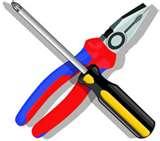Hands-On Searching:
Search Techniques
The Value of Good Search Techniques
When evaluating citation data, or other types of data, on a research topic, the basis for data collection is the set of publications that represent the research topic. In most cases, you are generating this list of resources by the literature searches you perform in Web of Science or other tools. Therefore, the quality of your database search is very important because you want the search results to adequately reflect the available literature on your specific topic.
When you search a database on a topic, you type in a specific combination of words and punctuation that represent your research topic. For many topics, you can enter in terms and get some kind of results, relevant or not.
When evaluating citation data, or other types of data, on a research topic, the basis for data collection is the set of publications that represent the research topic. In most cases, you are generating this list of resources by the literature searches you perform in Web of Science or other tools. Therefore, the quality of your database search is very important because you want the search results to adequately reflect the available literature on your specific topic.
When you search a database on a topic, you type in a specific combination of words and punctuation that represent your research topic. For many topics, you can enter in terms and get some kind of results, relevant or not.
But to obtain good search results—e.g., you are finding relevant articles and not obtaining a lot of irrelevant articles—you need to perform the best searches you can. You do this by analyzing your research topic for concepts and terms, and then structuring your search statement with specific symbols to tell the database exactly how you want it to use your words and phrases in a search.
These search concepts can improve search results at any time during the search, not just at the start. If you are not getting the results you want or expect, try reviewing your terms, use of AND and OR, and other details of search structure to improve your search.
_____________________________________________________________________
TIP:
Make sure you select the most appropriate database(s). Databases differ in the subjects or disciplines that they cover, and the type of resources that are included. A good search in the 'wrong' database won't get you the results you want. To find out databases for Education, see this library guide: Finding Articles in Education.
_____________________________________________________________________
TIP:
Make sure you select the most appropriate database(s). Databases differ in the subjects or disciplines that they cover, and the type of resources that are included. A good search in the 'wrong' database won't get you the results you want. To find out databases for Education, see this library guide: Finding Articles in Education.
_____________________________________________________________________
Databases as we know them today are computerized collections of information about journal articles (and other resources). When searching a articles on a topic you improve the chances of getting good results if you know how to construct a good search. The two fundamental/major aspects of searching are to:
- Analyze your topic so you are the using the most relevant/accurate concepts and terms
- Build, or write out, your search statement using the correct database “grammar" and "punctuation.”
Analyzing a Topic
Analyzing your research topic is extremely important so that you identify and use the terms that best represent your topic, to obtain the best results. One step in analyzing a topic is to identify the discipline that it falls under. Many databases are interdisciplinary, but subject-specific databases are important as they tend to have more in-depth coverage of a topic.
Suggested steps in analyzing a topic:
Analyzing your research topic is extremely important so that you identify and use the terms that best represent your topic, to obtain the best results. One step in analyzing a topic is to identify the discipline that it falls under. Many databases are interdisciplinary, but subject-specific databases are important as they tend to have more in-depth coverage of a topic.
Suggested steps in analyzing a topic:


